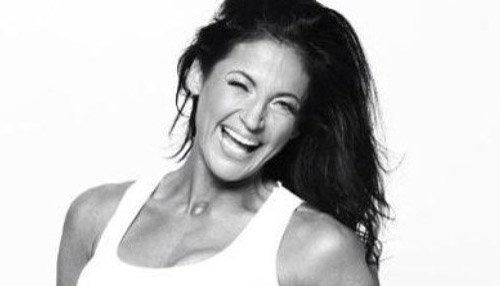
Liva Went From Yo-Yo Dieting To Ultramarathons
Liva spent years taking care of her family and not taking care of herself. A divorce was the kick-start she needed to take back her health.
Liva came from a family where healthy eating wasn't a priority. The bad habits she learned young stayed with her through adulthood. "I was overweight the majority of my life," she explains. "I met my ex-husband when I was 19, and I wasn't very fit then. I smoked cigarettes and was kind of a mess health-wise. I just never really got on the healthy-eating train. Then I started having kids and never lost the baby weight. All of that put together was a recipe for disaster."
When Liva got divorced, the stress could have led her into a downward spiral. She had every reason to let it. Instead, she took the reins and regained control of what she could: her own health.
This is Liva's story.
What was your diet like before you decided to transform?
For the most part, it was a lot of fast food. In the rare instances I made meals at home, they were fried and not healthy or nutritious at all. That came from my upbringing. Healthy eating just wasn't something my family engaged in growing up.
Did you try to lose weight before your divorce?
I did everything. I followed Weight Watchers with some positive results. I lost 15 or 20 pounds, but the problem wasn't losing the weight—it was keeping it off. Fads fade, but even when I tried actual lifestyle changes to be healthier, they never stuck.
I was in a place where I was taking care of my husband and my children, but I wasn't taking care of myself. I'm a giver by nature, and I just lost myself completely when I became a mom and wife. By the time I had my second child, I weighed 220 pounds.
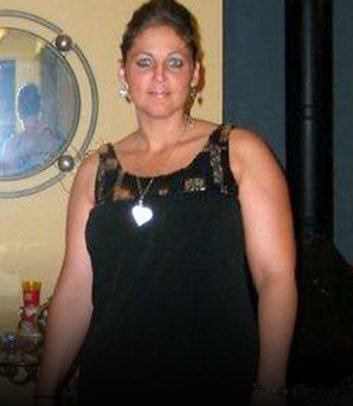
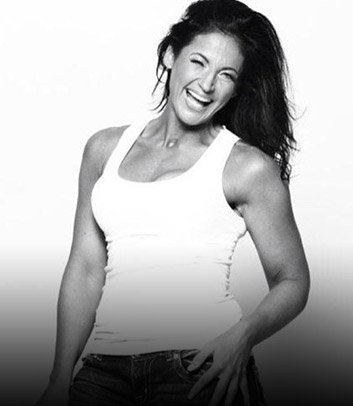
Height: 5'7"
Weight: 205 lbs.
Height: 5'7"
Weight: 145 lbs.
What sort of stress were you under at that point in your life?
Not only did I have another baby, but I actually adopted a child, too. During all of that, I went through a separation, and ultimately, a divorce. All that stress affected my health in a terrible way. I don't know that I'm necessarily a "stress eater," but when you're under enormous stress, the last thing on your mind is making good food choices.
What was your turning point?
When I was 35, I realized I was done having kids, and I decided I didn't want to keep living the way I had been. I hired a personal trainer, learned a lot about nutrition, and started to lose a little weight. I probably lost about 20 pounds in the first four or five months, but then I grew somewhat complacent. I thought, "Hey, I've lost some weight. I'm good."
How did you combat that complacency?
I tried the obstacle-course portion of the Tri-Fitness Challenge and realized I loved it. The only catch? There's a swimsuit portion to that competition. I asked my trainer if he thought I could do it, and he answered with a definite yes. That was the start of my journey. I had 12 weeks before my first show, before I had to step on stage in a swimsuit.
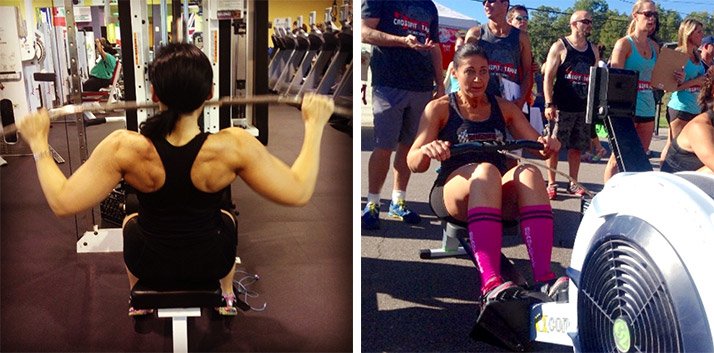
What was the first change you made?
I initially started by cleaning up my diet tremendously—cutting out all the unhealthy carbs, proteins, and fats, and replacing them with healthier versions. I also started eating five or six small meals a day. I had to learn about macros and portion control, too. It was all so alien to me because I had never taken the time to educate myself on the right things to put into body.
In the beginning, there wasn't a whole lot of cheating. I believe that when you're trying to reach a goal, you have to be pretty structured. You have to create good habits, which is hard to do when you allow for occasional cheat meals.
Now that I've gotten to a place where I've kept the weight off for a very long period of time, I can cheat a bit more—a couple of times a month is average.
After so many failed attempts at weight loss, what made you stick to a healthy lifestyle this time?
I don't know what changed. I think enormous life changes are sometimes best made when you have something else to focus on. It's that focus that allows you surpass the negatives. Some people turn to alcohol, and some people turn to food. I turned to working out. It became my coping mechanism. I threw myself into it 110 percent because it was something I could control when everything else in my life was in disarray.
What was the hardest part for you?
It was definitely the diet. Over time, if you don't have good role models for health, you just fall into what you know. I think it all goes back to my childhood and the fact that I grew up in a very unhealthy home.
The diet is the hardest part for so many people. What would you say to others who are struggling?
In my experience, you can lose so much of yourself as you get older. You wake up one day and just accept that this is what life has handed you—this is the body that children left behind. People don't realize that it's never too late to make changes in your life.
They don't need to be dramatic changes; daily small changes can end up becoming sweeping life changes. Start with something manageable, like cutting out soda, or working out every day for a week.
What has been your greatest achievement during your transformation?
My greatest achievement, bar none, was the London Marathon I ran this year. I did a couple of marathons, and an ultramarathon before that, but going to another country and competing was such a life-changing experience.
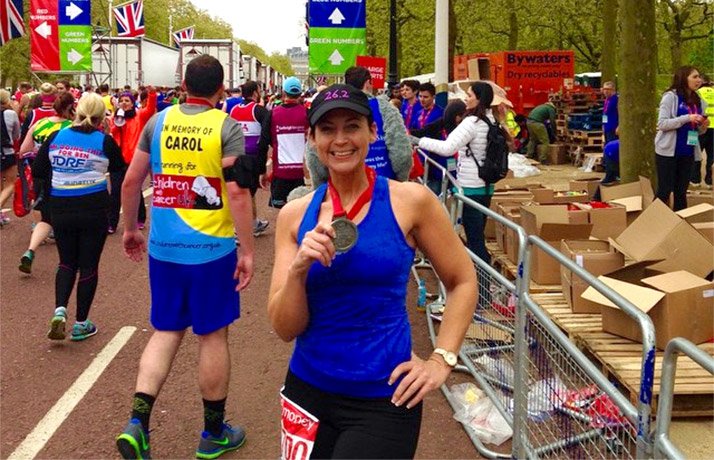
Where else have you competed?
I have competed in 16 swimsuit competitions, run three marathons and an ultra-marathon, and gotten certified as a CrossFit trainer. I've also competed in several CrossFit competitions, as well as triathlons and Tri-Fitness Challenge obstacle courses. Sometimes, I feel like I needed to catch up, since I discovered all I was capable of at the ripe age of 35.
Where does your drive for competition come from?
Honestly, it's the fear of reverting back to my old self. It's that fear that keeps me competing. I thrive on having goals, and once you start achieving them, they get bigger and bigger. I'm not sure what the next year will bring; it's getting tough to top what I've already done, but I'm sure I'll find a way. Competing helps me to stay on track. It's why I've done as much as I've done.
I also have the most amazing support system. My kids are great, and I have the best friends in the world. And I'll tell you, the fitness community is one amazing, kick-ass bunch of people. I've met so many people within the industry who have been uplifting.
You might think a beautiful, muscular athlete would be a jerk, but in my experience, that's the furthest thing from the truth. Everybody is the same. Everybody has struggles, but we all strive to be better.
How did you discover Bodybuilding.com?
I stumbled upon it during a Web search. Since then, I've gone to the site to research and learn more about nutrition, and also to look at transformations. Those transformations are lifesavers. When I was looking for people to relate to who weren't fitness models, and I wanted to find inspiration in things I could attain, Bodybuilding.com's transformations provided just that.

